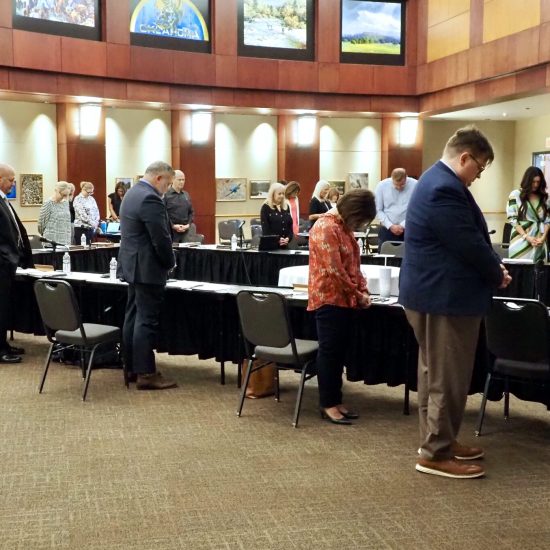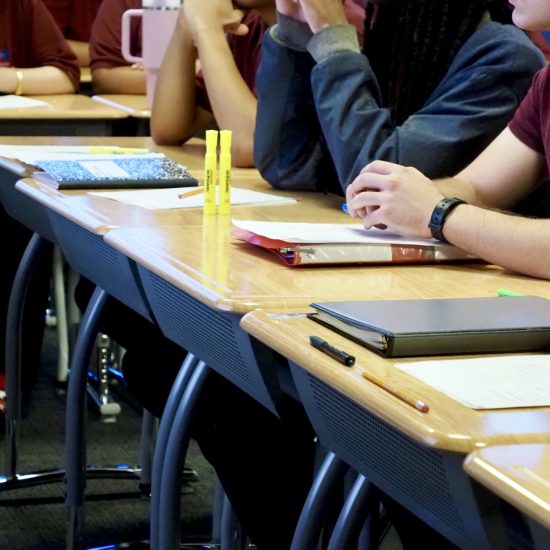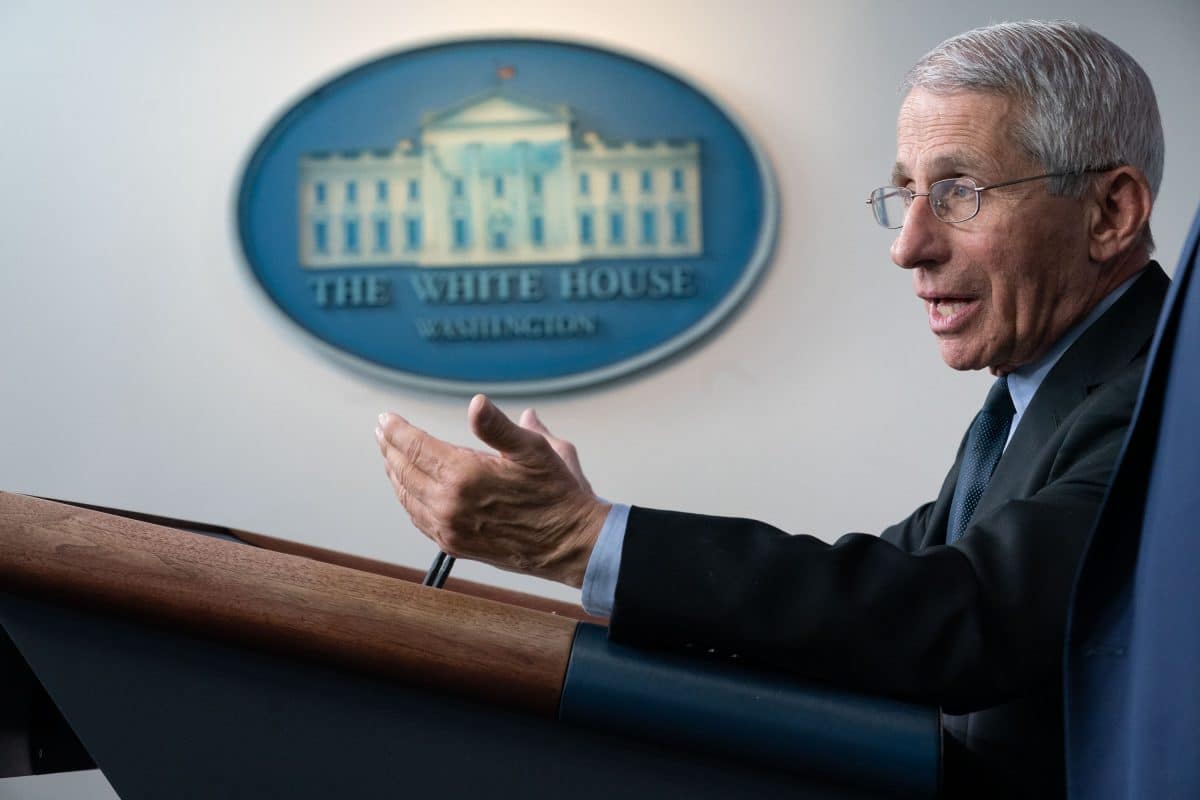
As governors and mayors across the United States seek to slow the spread of the coronavirus outbreak, a church-state issue quickly emerged after some governmental officials included houses of worship in their bans on mass gatherings. Even while some officials created religious exemptions, Baptists who monitor church-state issues agree that such exemptions are not constitutionally necessary.
As of March 26, more than 525,000 people globally have been infected with the COVID-19 respiratory disease caused by coronavirus, and more than 23,000 have died. In the U.S., the country as of March 25 with the highest number of infected persons, more than 81,000 have tested positive and more than 1,100 have died.
Since social distancing remains critical to preventing the spread of the highly-contagious virus, states and cities across the U.S. have responded by banning mass gatherings — varying in size, but often banning those larger than 100, 50, or even 10 or more people. The orders have sparked church-state questions, legal action, and even churches meeting in defiance of bans. Medical professionals, however, see preventing large church gatherings as critical.
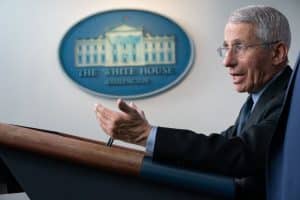
Anthony Fauci speaks at a coronavirus update briefing in the White House on March 16. (D. Myles Cullen/White House)
“Crowds in church are important and every time I get a chance to say it, I mention it,” warned Anthony Fauci, director of the National Institute for Allergy and Infectious Diseases and and a member of the White House Coronavirus Taskforce. “When you say less than 10, it makes common sense that it involves the church.”
Churches can be a key hotspots as people gather in close quarters, breathing the same air and touching the same objects like doors and offering plates. A Reuters analysis in early March of cases in South Korea found that the 31st person to test positive sparked more than 1,000 new cases after attending church services. Similarly, a church service in France in February led to several more coronavirus diagnoses in other members of that congregation.
Similar cases have now occurred in the United States. For instance, someone tested positive after attending church in Kentucky — after that state’s governor specifically requested churches not hold in-person services. And at least 37 people tested positive after attending a service at a church in Arkansas, with a 91-year-old church greeter dying.
Despite these concerns, some governors have created religious exemptions to the mass gathering bans, including New York, Ohio, and Pennsylvania. Michigan Governor Gretchen Whitmer’s March 23 stay-at-home order carved out this exception: “a place of religious worship, when used for religious worship, is not subject to penalty under section.” Similarly, Kansas Governor Laura Kelly’s March 24 ban on gatherings of more than 10 persons included an exemption for “religious gatherings.” And while Missouri’s order banning gatherings of 10 or more doesn’t explicitly mention religious gatherings, Governor Mike Parson said houses of worship are exempt.
Other governors, however, have not included religious exemptions, including Maryland and Oregon. California’s stay-at-home order created an exemption for people leading “faith-based services that are provided through streaming or other technology” but not for in-person worship services.
In New Hampshire, three individuals filed a lawsuit challenging Governor Chris Sununu’s order restricting mass gatherings from being larger than 50 persons. The plaintiffs argued the governor could advise against gatherings but not ban them. One of the three plaintiffs noted his attendance in services multiple times a week at Bible Baptist Church in Nashua, where he teaches Sunday School. He argued the governor didn’t have the constitutional right to restrict such religious gatherings.
“Anyone can choose not to exercise their God-given unalienable rights,” plaintiff Eric Couture argued. “We can choose not to assemble if that is our desire. What cannot occur is one man in a position of power deciding to strip us of our rights in the name of safety and without due process.”
However, after hearing arguments in the case, Judge John Kissinger on March 20 dismissed the lawsuit.
“It is clear from the factual conclusions … that this is an extraordinary public health crisis and the danger to the citizens of New Hampshire, the country and the world is real and it is imminent,” Kissinger said. “The court cannot imagine a more critical public objective than protecting the citizens of this state and this country from becoming sick and dying from this pandemic.”
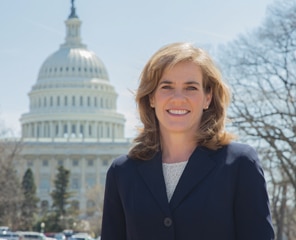
Holly Hollman (BJC)
Baptist experts in church-state issues agree that governmental officials can include religious services in bans on mass gatherings. Holly Hollman, general counsel and associate executive director of BJC (which brings together more than a dozen Baptist bodies to advocate for religious liberty), explained that in cases where governmental efforts that could limit religious liberty rights (like holding in-person services), the government must pass “strict scrutiny” to show there’s a “compelling governmental interest” and the government’s action is the “least restrictive means” to address that interest. Thus, for public health reasons, a ban on mass gatherings can include religious services.
“There’s a lot to work through, and the sensitivity to religious interests is important and part of our tradition,” she explained. “I think what’s happening is people are trying to respond — and the leaders are trying to make difficult decisions for public health and safety based on the best information they have.”
“The state has a very high interest in keeping the public safe,” Hollman added. “These conversations about whether the government is infringing on my religious rights are important. And there are things that we demand from our government in order to protect religious liberty. We demand and want them to stay out of essential religious matters. And, at the same time, religion is not above the law when it comes to all of these important matters of the state, and the state clearly has both the authority and the responsibility to take care of the public in health and safety matters.”
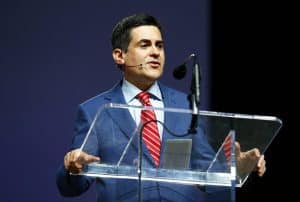
Russell Moore (Butch Dill/Religion News Service)
Similarly, Russell Moore, president of the Southern Baptist Convention’s Ethics & Religious Liberty Commission, argued it doesn’t violate religious liberty rights for governments to include churches in the bans since we’ve not seen “churches targeted because of their beliefs or mission.”
“The current situation facing us is not a case of the state overstepping its bounds, but rather seeking to carry out its legitimate God-given authority,” Moore added. “Concern for public health is not a violation of religious liberty.”
While Moore didn’t see problems with including in-person church services in mass gathering bans, he did urge governments to be careful not to limit pastoral ministry.
“Any order should include the maximum recognition of the need for clergy and other religious workers to carry out necessary ministry, in the same category as health care workers,” he explained. “Such ministry is necessary. A nursing home patient who is in peril needs a doctor to care for her physically, but also should be allowed to have a pastor pray for her, her priest administer last rites, or whatever the equivalent would be in her religion.”





